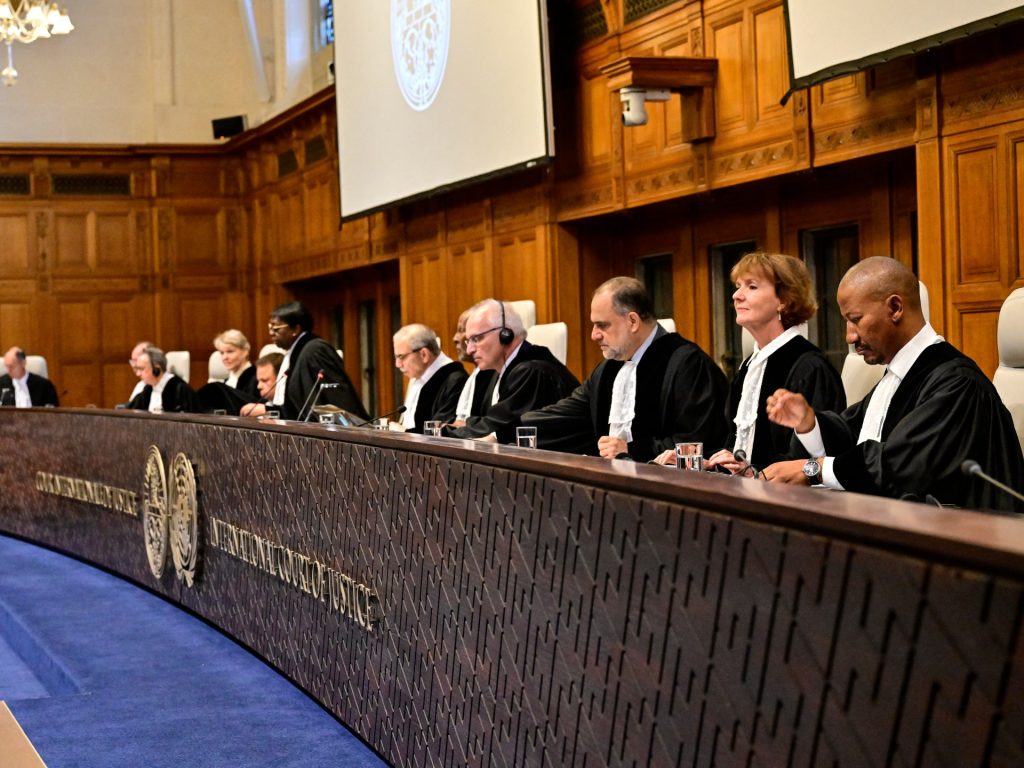Bolivia has officially joined South Africa’s genocide case against Israel at the International Court of Justice (ICJ) in The Hague. The South American nation filed an application to intervene in the case, which accuses Israel of committing “genocidal acts” in its conflict in Gaza. This move by Bolivia adds to the growing list of states involved in the case, including Colombia, Libya, Spain, Mexico, Palestine, Nicaragua, and Turkey. The ICJ had previously ruled that Israel must take measures to prevent acts of genocide in Gaza and allow UN-mandated investigators access to the area.
The Israeli Prime Minister, Benjamin Netanyahu, rejected the ICJ’s interim ruling and stated that Israel would continue its actions in what he referred to as a “just war”. Amnesty International criticized Israel for failing to comply with the ICJ’s orders, stating that the country had not taken even the minimum steps to adhere to the court’s ruling. South Africa has repeatedly appeared before the ICJ, arguing for emergency measures to address the dire humanitarian situation in Gaza. Despite ICJ rulings being legally binding, the court does not have the power to enforce them, leading to continued conflict and violence in the region.
In its submission to the ICJ, Bolivia, which had severed ties with Israel in November, condemned what it called Israel’s ongoing genocidal war and stated that the court’s orders had not been followed. Bolivia expressed a responsibility to speak out against the crime of genocide, leading to its decision to join the case against Israel. The war in Gaza, which has lasted for over a year, has resulted in the deaths of more than 42,000 people, the majority of whom were civilians, according to the Ministry of Health in the enclave. In response to these actions, Philippe Lazzarini, head of UNRWA, the main relief organization in Gaza, highlighted the immense suffering experienced by the people in the region. Families in Gaza are facing displacement, disease, hunger, and death on a daily basis, painting a grim picture of life in the besieged enclave.
The ICJ’s rulings against Israel, particularly in relation to the conflict in Gaza, have sparked international attention and condemnation. The court’s orders for Israel to prevent acts of genocide and comply with UN investigators have been met with defiance from Israeli leadership, further escalating the conflict. With a growing number of countries joining the case against Israel, the ICJ is facing pressure to address the ongoing violence and suffering in Gaza. Despite the legal obligations imposed by the court, the lack of enforcement mechanisms has allowed Israel to continue its actions in the region, leading to a humanitarian crisis that has drawn criticism from international organizations and human rights groups.
The involvement of Bolivia in the case against Israel reflects a broader trend of increased international scrutiny of the conflict in Gaza. Countries like South Africa, Colombia, and Turkey have also taken steps to hold Israel accountable for its actions in the region. The high number of civilian casualties, displacement, and suffering in Gaza have prompted calls for urgent action to address the humanitarian crisis. The ongoing war and violence in Gaza have drawn attention to the need for a peaceful resolution to the conflict that respects the rights and safety of all those involved. The ICJ’s involvement in the case against Israel highlights the importance of international law in addressing human rights abuses and promoting accountability for crimes committed during armed conflicts.















